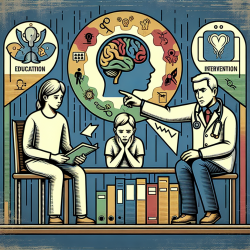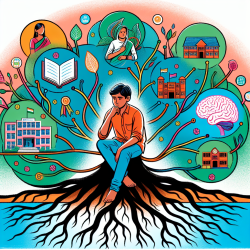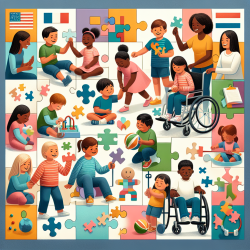Introduction
In the rapidly evolving landscape of U.S. demographics, immigrant adolescents represent a significant and growing portion of the youth population. Despite their increasing numbers, they remain largely overlooked in health literacy research. This blog post delves into the findings from the research article titled "The Health Literacy of U.S. Immigrant Adolescents: A Neglected Research Priority in a Changing World," which highlights the critical need for a coordinated research agenda focused on this demographic. By understanding and implementing these findings, practitioners can enhance their skills and contribute to improved health literacy outcomes for immigrant adolescents.
Understanding the Research
The research underscores the unique challenges faced by immigrant adolescents as they navigate new social systems and develop health literacy skills. These adolescents often serve as linguistic and cultural intermediaries within their families, yet their contributions to health literacy remain largely invisible. The study argues for a more nuanced understanding of health literacy as a socially and historically situated practice, shaped by the transnational experiences of immigrant adolescents.
Key Findings and Implications for Practitioners
- Socially Situated Health Literacy: Health literacy should be viewed as a social practice rather than merely a set of skills. Practitioners are encouraged to consider the social contexts and cultural dynamics that influence health literacy development in immigrant adolescents.
- Linguistic Brokering: Immigrant adolescents often act as linguistic brokers for their families, translating and interpreting health information. Practitioners should recognize and support these roles, as they provide valuable opportunities for developing interactive and critical health literacy skills.
- Identity and Health Literacy: Identity development is central to adolescent growth. Practitioners should explore how immigrant adolescents' health literacy practices are linked to their evolving identities and social roles.
- Digital Literacy: The digital environment offers immigrant adolescents a platform for learning and sharing health information. Practitioners should leverage digital tools to enhance health literacy education and support adolescents' digital literacy practices.
Encouraging Further Research
The research highlights several promising areas for further investigation, including the relationship between health literacy and identity development, the role of digital skills in health literacy practices, and the unique challenges faced by immigrant adolescents with limited formal education. Practitioners are encouraged to engage in interdisciplinary research collaborations to explore these areas and contribute to a more comprehensive understanding of immigrant adolescent health literacy.
Conclusion
By embracing a socially situated view of health literacy and recognizing the unique experiences of immigrant adolescents, practitioners can enhance their skills and contribute to better health outcomes for this population. The research provides a valuable framework for understanding and addressing the health literacy needs of immigrant adolescents in today's globalizing world.
To read the original research paper, please follow this link: The Health Literacy of U.S. Immigrant Adolescents: A Neglected Research Priority in a Changing World.










